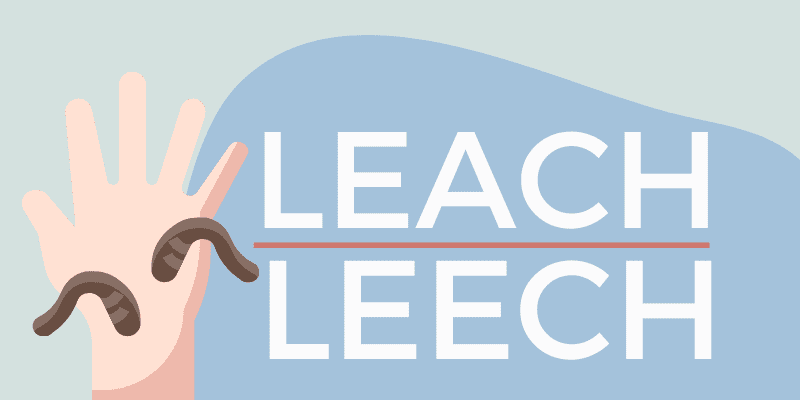Leach or Leech – What’s the Difference?
Do you know the difference between leech and leach? Not many do, so don’t feel bad. Homophones can be tough for anyone, even pro-English speakers. But I’ll quickly show you the main difference between leech and leach right here, so you never have to wonder again. Leach vs. Leech: What’s the Difference? The biggest difference between “leach” and “leech” is mostly in their meanings. “Leach,” with an A and E in the middle, is considered a verb to mean the …



